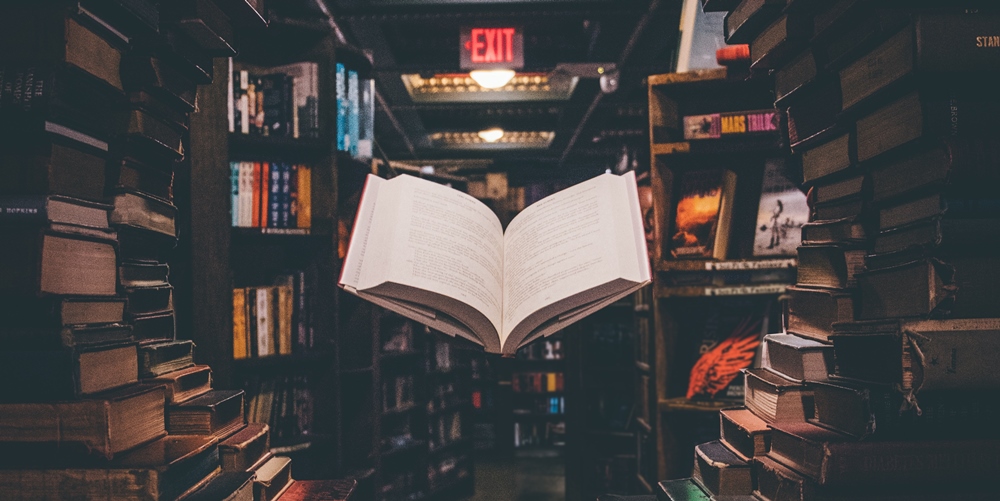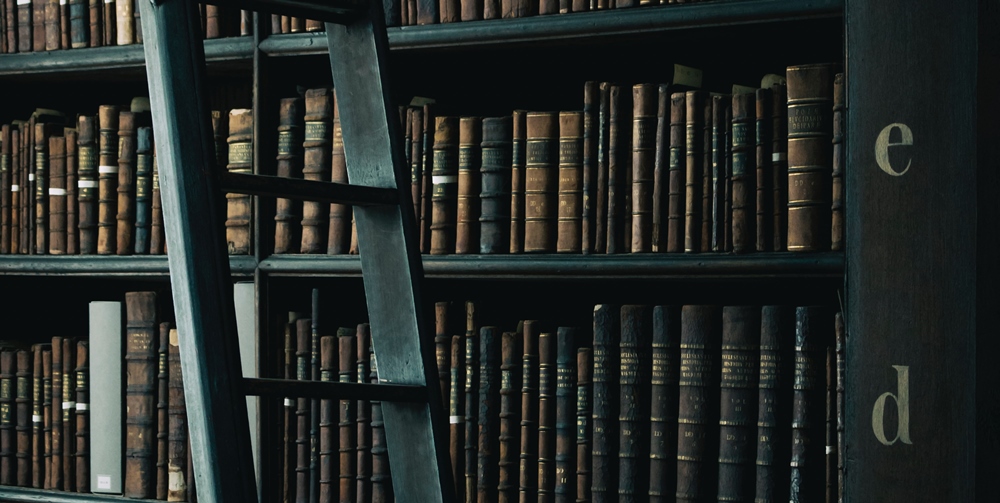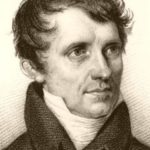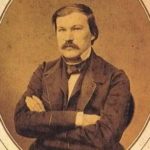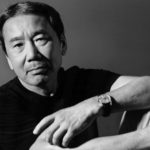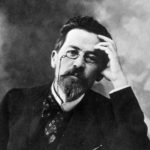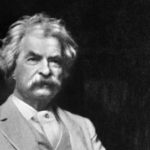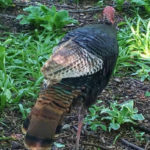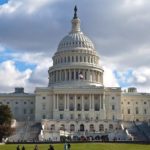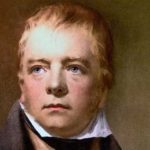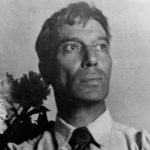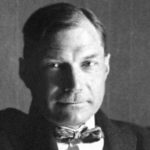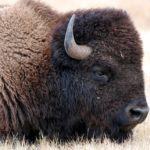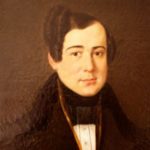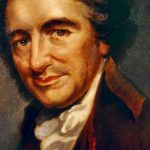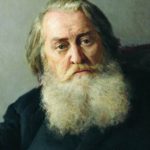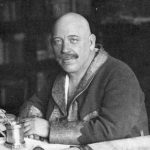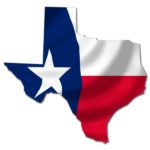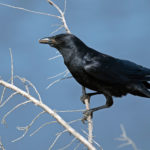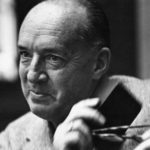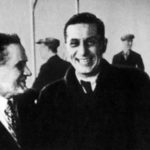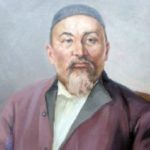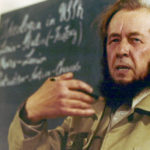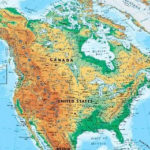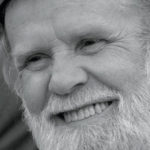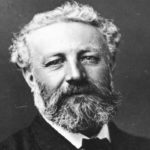American Literature, Classic American Literature Authors with List of Their Works
In the last 200 years, North American writers have produced work that is now part of the world’s culture. During the 1800s and 1900s, classic American literature authors such as Ambrose Bierce and O. Henry developed the short story into a distinctively American form. There are many fine American novelists, dramatists, and poets whose work has been widely influential, both in America and in European Literature of the United States Before 1800, America’s early colonists wrote histories about their activities, religious and moral poetry, and political pamphlets. Among the few creative writers was Edward Taylor, a Puritan minister whose fine poetry remained unpublished until the 1930s. He is now thought to be the finest poet of the colonial period.
During the 1700s, in the period before the War of Independence, classic American literature authors were mostly concerned with politics. Benjamin Franklin and Thomas Paine were the leading political writers. Franklin satirized British policies during the War of Independence in such pamphlets as Rules For Reducing a Great Empire to a Small One. Paine encouraged the Americans in their fight against Britain in a series of pamphlets called The Crisis. Few novels or plays of any merit were written during the colonial and revolutionary periods.
By the early 1800s, however, a distinctively American style of writing in novels, stories, and poetry began to develop. The writers of this period, inspired by the Romantic style of European literature, emphasized freedom, individualism, the common man, and nature. New York became America’s literary center.
The first novelist to use an American background was James Fenimore Cooper. In his Leather-Stocking Tales, a series of novels including The Deerslayer and The Last of the Mohicans, Cooper wrote exciting frontier stories that began an important tradition in American literature. Cooper and Washington Irving were the first American writers to make an important contribution to world literature. Irving headed a group of New York writers, called the Knickerbockers after Irving’s satirical Knickerbocker’s History of New York. Among Irving’s works were versions of folk tales, such as Rip Van Winkle and The Legend of Sleepy Hollow.
Before 1850, the short story developed into an important literary form in America, with collections such as Nathaniel Hawthorne’s Twice-Told Tales and Edgar Allan Poe’s Tales of Mystery and Imagination. In the later 1800s, Ambrose Bierce was noted for his Tales of Soldiers and Civilians and Can Such Things Be? In the 1850s, the American novel reached high standards. Nathaniel Hawthorne’s The Scarlet Letter is about the tragic effects of sin. Critics consider that it is the first American novel in which the form of the story and the subject are perfectly matched. Herman Melville used his experience of early years at sea in Moby Dick. Although little appreciated at the time, Moby Dick has since been recognized as perhaps the greatest American novel.
American Poetry Before and After the Civil War
In the period before the Civil War, the campaign against slavery produced some important writing. Harriet Beecher Stowe’s anti-slavery novel, Uncle Tom’s Cabin, was the best-known abolitionist work. Poetry was also important in the 1800s. Early in the period, many poets became widely popular. The first and perhaps the best popular poet was William Cullen Bryant. During the mid-1800s, a talented group of poets and essayists living in and around Boston, Massachusetts, began the so-called New England Renaissance. They included Henry Wadsworth Longfellow, James Russell Lowell, John Greenleaf Whittier, and Oliver Wendell Holmes. Longfellow was a talented verse-maker. Such poems as The Song of Hiawatha and The Courtship of Miles Standish made him among the most popular poets of his day. Walt Whitman, however, who was perhaps the leading American poet of the 1800s, did not belong to any group. In his vigorous free verse, such as Leaves of Grass, he praised democracy, America, and the joys of physical and spiritual life. Emily Dickinson was another major poet of the 1800s. Her brilliant poems examine the connection between abstract and concrete (actual) things.
An important development of the Romantic movement of the 1800s was Transcendentalism. The transcendentalist writers emphasized the power of mind over matter and intuition over reason. They also stressed the importance of individualism and self-reliance. The leader of this movement was Ralph Waldo Emerson. He presented his theories in essays, such as Self-Reliance and Over-Soul. Emerson’s chief follower was Henry David Thoreau. In his book Walden, Thoreau recorded his experiences during two years of living in solitude in the country.
The period that followed the Civil War saw the development of the local color movement of writers. Colorful, amusing descriptions of local speech and customs in America became popular through such writers as Bret Harte and Joel Chandler Harris. Harte was noted for his exciting tales about the California Gold Rush, and Harris for his versions of legends in his Uncle Remus stories. Mark Twain (Samuel Langhorne Clemens) was the greatest writer to emerge from this movement. His two best-known novels, The Adventures of Tom Sawyer and The Adventures of Huckleberry Finn, set in the Mississippi River region, show humor and insight that make Twain one of America’s leading novelists.
Henry James is a complete contrast to Twain. In his novels, James examines the life of Americans visiting and living in Europe. He was the most influential writer of his period in American literature, both in America and in Europe.
The last years of the 1800s saw the arrival of the Realist and the beginnings of the Naturalist movements in writing. Such novelists as William Dean Howells and Stephen Crane began to use realism to examine the social problems of the day. Other writers developed this combination of realism and social criticism into the movement known as Naturalism. The movement was inspired by the French novelist Emile Zola, who had pioneered this approach in Europe. American Naturalist novelists, such as Theodore Dreiser in his novels Sister Carrie and An American Tragedy, wrote about the poorer people in society and how society could drive people to evil. Other leading Naturalist writers were Frank Norris, Jack London, and Upton Sinclair. Writers of the 1920s and 1930s who developed the Naturalist tradition were Sherwood Anderson, John Dos Passos, and John Steinbeck.
Other major classic American literature authors included Sinclair Lewis, Ernest Hemingway, F. Scott Fitzgerald, and William Faulkner. Lewis was important for his criticism of small-town life in the Midwest in such novels as Main Street. Hemingway became widely popular for his tough, spare style in adventurous and realistic novels, such as A Farewell to Arms and For Whom The Bell Tolls. Scott Fitzgerald was the brilliant observer of the rich young people of the Jazz Age of the 1920s in This Side of Paradise and The Great Gatsby. William Faulkner based his long, complex novels about Southern society on an imaginary county in Mississippi. They included Intruder in the Dust and Light in August. Another important Southern novelist was Carson McCullers.
American Poetry and Poets of the 1900s
After the death of Walt Whitman, American poetry declined. However, with the founding of Poetry: A Magazine of Verse in Chicago in 1912, it began to revive. Many leading poets gained recognition because of the interest that Poetry aroused. They included Edward Arlington Robinson, Robert Frost, the most popular American poet of the 1900s, and Carl Sandburg. Frost’s poems, such as Stopping by Woods on a Snowy Evening, are simple and readable but have deep insights into human nature. Sandburg’s vigorous free verse, praising democracy and the common man, made him very popular.
During the 1900s, several poets broke with tradition and made important new experiments with a form to produce new poetry that suited the times. The most important were Ezra Pound and T. S. Eliot. The pound was the leader of the Imagist group of poets, who emphasized everyday speech, new rhythms, and sharp, clear images (word pictures). His early Imagist works, and his complex works, such as the Cantos, strongly influenced many young American and British poets. Eliot had an even greater influence. His works, including The Love Song of J. Alfred Prufrock, The Waste Land, and Four Quartets, began a modern tradition of complex, symbolic poetry. Poets influenced by Eliot included Harte Crane, Marianne Moore, and Wallace Stevens, e.e. cummings (who wrote his name like that) was another experimenter. He used strange punctuation and no capital letters.
The short story continued to develop during the 1900s. For example, many leading novelists and poets, such as Hemingway, Faulkner, and Langston Hughes, wrote short stories. The best-known short story writer of the early 1900s, O. Henry (William Sydney Porter), was noted for his surprise endings. Slang and dialect stories by such authors as Ring Lardner and Damon Runyon became popular. The leading humorists of the 1900s were James Thurber (stories and essays), Robert Benchley (essays), and Ogden Nash (poetry).
Eugene O’Neill is generally regarded as America’s first great dramatist. His plays, including Emperor Jones (1920), Desire Under the Elms (1924), and The Iceman Cometh (1946), revolutionized American theater with their realistic themes and new stage techniques. Inspired by O’Neill, drama flourished in the 1920s and 1930s. Important dramatists of this period include Elmer Rice, Maxwell Anderson, and Thornton Wilder.
During the 1940s and 1950s, many novels were written about World War II. Among the best was Norman Mailer’s The Naked and The Dead and James Jones’s From Here to Eternity. An outstanding novel of the early 1950s was Ralph Ellison’s The Invisible Man. J. D. Salinger gained wide success in the 1950s with his novel The Catcher in the Rye and short stories Franny and Zooey. Other important novelists included Saul Bellow and John Updike. Joseph Heller won great fame with the success of his satirical war novel Catch 22. Jack Kerouac became a leading novelist of the ‘beat generation’ of the 1950s. During the later 1950s and early 1960s, James Baldwin became famous for his essays and novels, including The Fire Next Time and Another Country.
Outstanding poets since World War II include Richard Eberhardt, Robert Lowell, Richard Wilbur, and the Pulitzer prize-winner Gwendolyn Brooks. Among the leading beat generation poets were Alan Ginsberg and Gregory Corso. The major dramatists of the last 20 years have included Tennessee Williams, Arthur Miller, and Edward Albee. Williams’s noted plays, in Southern settings, include A Streetcar Named Desire and Cat On a Hot Tin Roof. Miller criticized the American dream in The Death of a Salesman, and superstitious intolerance in The Crucible. Albee’s successful plays include Who’s Afraid of Virginia Woolf? and The Death of Bessie Smith.
Classic Canadian Literature English-speaking Canadian writers were influenced by English literature and French Canadian writers by French literature. However, they share many themes. A national classic American literature began to develop in Canada after 1867 when the British North American colonies joined together. Canadian writers have been inspired by the vastness of their country and the beauty of its scenery. Frontier life has been another important theme. Major Canadian writers are listed in this article below.
USA – American literature list of authors’ works
The following are some of the important classic American literature authors with a list of their work:
- Edward Taylor (1642-1729), poet Benjamin Franklin (1706-90) – Autobiography
- Thomas Paine (1737-1809) – The Rights of Man
- Washington Irving (1783-1859), short story writer and essayist- The Legend of Sleepy Hollow
- James Fenimore Cooper (1789-1851), novelist- Leafher-stocking Tales
- William Cullen Bryant (1794-1878), poet – To a Waterfowl
- Ralph Waldo Emerson (1803-82), essayist – Essays
- Nathaniel Hawthorne (1804-64), novelist – The Scarlet Letter
- Henry Wadsworth Longfellow (1807-82), poet-The Song of Hiawatha
- John Greenleaf Whittier (1807-92), poet-Snow-Bound
- Oliver Wendell Holmes (1809-94) – The Autocrat of the Breakfast Table
- Edgar Allan Ðîå (1809-49), short story writer and poet – The Murders in the Rue Morgue
- Harriet Beecher Stowe (1811-96) – Uncle Tom’s Cabin
- Richard Henry Dana (1815-82), novelist – Two Years Before the Mast
- Henry David Thoreau (1817-62), essayist – Walden
- James Russell Lowell (1819-91), poet – Poems
- Herman Melville (1819-91), novelist – Moby Dick
- Walt Whitman (1819-92), poet – Leaves of Grass
- Emily Dickinson (1830-86), poet
- Louisa May Alcott (1832-88), novelist- Little Women
- Mark Twain (1835-1910), novelist – Huckleberry Finn
- Bret Harte (1836-1902), short story writer – The Outcasts of Poker Flat
- Ambrose Bierce (1842-1914), short story writer – Tales of Soldiers and Civilians
- Henry James (1843-1916), novelist – Portrait of a Lady
- Joel Chandler Harris (1848-1908) – Uncle Remus
- Î. Henry (1862-1910), short story writer – The Voice of the City
- Frank Norris (1870-1902), novelist – McTeague
- Stephen Crane (1871-1900), novelist – The Red Badge of Courage
- Theodore Dreiser (1871-1945), novelist – An American Tragedy
- Robert Frost (1874-1963), poet – Collected Poems 1930
- Sherwood Anderson (1876-1941), novelist – Poor White
- Jack London (1876-1916), novelist – Òhe Sea-Wolf
- Carl Sandburg (1878-1967), poet – Complete Poems
- Wallace Stevens (1879-1955), poet – Collected Poems
- Damon Runyon (1884-1946), short story writer – Guys and Dolls
- Sinclair Lewis (1885-1951), novelist – Main Street
- Ring Lardner (1885-1933), humorist – Best Short Stories
- Ezra Pound (1885-1972), poet – Cantos
- Edna Ferber (1887-1968), novelist- Giant
- Raymond Chandler (1888-1959), novelist – The Big Sleep
- Maxwell Anderson (1888-1959), dramatist – Winterset
- T. S. Eliot (1888-1965), poet and dramatist – The Waste Land, Murder in the Cathedral
- Eugene O’Neill (1888-1953), dramatist – Strange Interlude
- Robert Benchley (1889-1945), humorist – The Early Worm
- Elmer Rice (1892-1967), dramatist – The Adding Machine
- e. e. cummings (1894-1962), poet – Poems 1923-1954
- Dashiell Hammett (1894-1961), novelist – The Maltese Falcon
- James Thurber (1894-1961), humorist – My Life and Hard Times
- John Dos Passos (1896-1970), novelist- U.S.A.
- F. Scott Fitzgerald (1896-1940), novelist – The Greaf Gatsby
- Robert Sherwood (1896-1955), dramatist – The Petrified Forest
- William Faulkner (1897-1962), novelist – Sanctuary
- Thornton Wilder (1897 – 1975), dramatist and novelist – Our Town, The Bridge of San
- Luis Rey Ernest Hemingway (1898-1961), novelist – The Old Man and the Sea
- Thomas Wolfe (1900-38), novelist – Look Homeward Angel
- Langston Hughes (1902-67), poet – The Weary Blues
- Ogden Nash (1902-1971), humorous poet – Hard Lines
- John Steinbeck (1902-68), novelist – The Grapes of Wrath
- Erskine Caldwell (1903-1987), novelist – Tobacco Road
- James T. Farrell (1904-1979), novelist – Young Lonigan
- Richard Wright (1908-60), novelist – Native Son
- Tennessee Williams (1911- 1983), dramatist – The Glass Menagerie
- Ralph Ellison (1914- 1994), novelist – Invisible Man
- Saul Bellow (1915-2005), novelist – Herzog
- Arthur Miller (1915-2005), dramatist – Death of a Sales man
- Gwendolyn Brooks (1917- 2000), poet – Annie Allen
- Robert Lowell (1917 – 1977), poet – Lord Weary’s Castle
- Carson McCullers (1917-1967), novelist – The Heart is a Lonely Hunter
- Jack Kerouac (1922-69), novelist – On the Road
- Norman Mailer (1923- 2007), novelist – The Deer Park
- James Baldwin (1924-1987), novelist and essayist – Ànother Country, The Fire Next Time
Canada – American literature list of works
The following are some of the important classic Canadian literature authors with a list of their work:
- P. A. de Gaspe (1786 – 1871), novelist – Les Anciens Canadiens
- John Richardson (1796 – 1852), novelist – Wacousta
- Thomas Chandler Haliburton (1796 – 1865), novelist – The Clockmaker, or The Sayings and Doings of Samuel Slick of Slickville
- Octave Cremazie (1827 – 79), poet – Chant du vieux soldat canadien
- Bliss Carman (1861 – 1929), poet – Low Tide on Grand Pre
- Stephen Leacock (1869 – 1944), novelist and humorist – Sunshine Sketches of a Little Town
- Lucy M. Montgomery (1874-1942), novelist – Ann of Green Gables
- Robert W. Service (1874-1958), poet – Ballads of a Bohemian
- E. J. Pratt (1883 – 1964), poet – The Witches’ Brew
- Thomas B. Costain (1885 – 1965), novelist – The Money man
- Mazo de la Roche (1885 – 1961), novelist – Jalnà
- Ringuet (1896 – 1960), novelist – Trente Arpents
- Morley Callaghan (1903 – 1990), novelist – The Loved and the Lost
- Hugh MacLennan (1907 – 1990), novelist – The Watch that Ends the Night
- Gabrielle Roy (1909 – 1983), novelist – Bonheurs d’occasion
- Ann Wilkinson (1910-61), poet – Counterpoint to Sleep
- Anne Hebert (1916 – 2000), poet – Songes en equilibre
- Louis Dudek (1918 – 2001), poet – Laughing Stalks
- Mordecai Richler (1931 – 2001), novelist – The Acrobats
- Leonard Cohen (1934), poet – Let Us Compare Mythologies
- Marie-Claire Blais (1939- ), novelist – Une Saison dans la Vie d’Emmanuel
